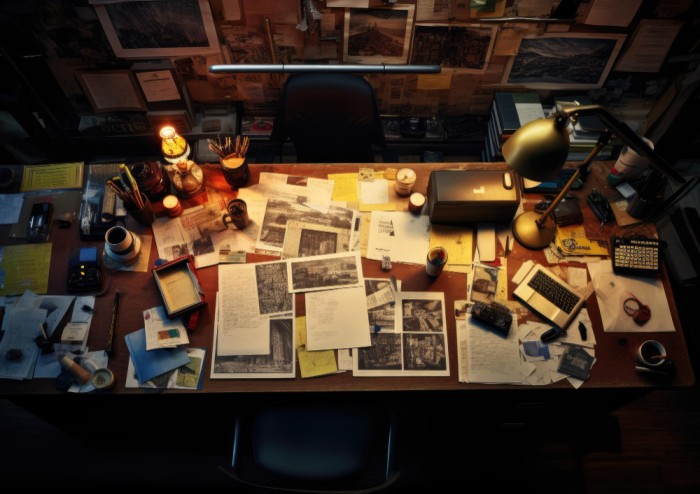Become a Detective Inspector is a rewarding career choice for those interested in solving crimes and maintaining public safety. This guide will provide a detailed, step-by-step pathway to achieving this role, incorporating essential information and keywords related to the field.
Step 1: Understand the Role to Become a Detective Inspector
What is a Detective Inspector?

A Detective Inspector (DI) is a senior police officer responsible for leading investigations, managing teams, and solving complex cases. They work closely with various departments, including forensic teams and detective agencies, to gather evidence and build cases.
Key Responsibilities:
- Leading criminal investigations
- Supervising detective sergeants and constables
- Analyzing crime scenes and evidence
- Coordinating with other law enforcement agencies
- Preparing and presenting cases in court
Step 2: Educational Requirements
High School Diploma
Start with a high school diploma or equivalent. Focus on subjects like criminal justice, psychology, and sociology, which provide a strong foundation for a career in law enforcement.
College Degree
While not always mandatory, a college degree in criminal justice, law, or a related field is highly beneficial. Many detective inspectors have a bachelor’s degree, which can enhance your understanding of the legal system and investigative techniques.
Step 3: Join the Police Force

Basic Police Training
Enroll in a police academy to receive basic training. This includes physical fitness, firearms training, and learning the fundamentals of policing. Completing this training is essential for becoming a police officer.
Gain Experience
Work as a police officer to gain experience in the field. This typically involves patrol duties, responding to emergencies, and conducting initial investigations. Experience in a detective agency or a private investigation in Pune can also be valuable at this stage.
Step 4: Advance to Detective
Promotion to Detective
After gaining experience as a police officer, aim for a promotion to detective. This usually involves passing an exam and demonstrating your investigative skills. As a detective, you’ll work on more complex cases and develop specialized skills.
Specialized Training
Consider specialized training in areas like homicide, narcotics, or cybercrime. This can enhance your expertise and make you a more competitive candidate for the Detective Inspector role.
Step 5: Develop Key Skills

Analytical Skills
Develop strong analytical skills to evaluate evidence and solve cases. This includes attention to detail and the ability to think critically.
Leadership Skills
As a Detective Inspector, you’ll lead a team. Strong leadership skills are essential for managing personnel, making decisions, and ensuring effective communication.
Communication Skills
Excellent communication skills are crucial for interviewing witnesses, writing reports, and presenting cases in court. Practice clear and concise communication, both written and verbal.
Step 6: Prepare for Promotion
Meet Eligibility Requirements
Ensure you meet the eligibility requirements for promotion to Detective Inspector. This typically includes a certain number of years of service, demonstrated leadership abilities, and a clean disciplinary record.
Take the Promotion Exam
Prepare for and pass the promotion exam. This exam tests your knowledge of law enforcement procedures, investigative techniques, and leadership skills.
Build a Strong Record
Maintain a strong service record by successfully solving cases, demonstrating leadership, and receiving positive evaluations from supervisors.
Step 7: Apply for the Position
Submit Your Application
Submit an application for the Detective Inspector position. Include your resume, a cover letter, and any required documentation. Highlight your experience, skills, and achievements.
Interview Process
Prepare for the interview process. This may include panel interviews, scenario-based questions, and assessments of your leadership and investigative abilities.
Showcase Your Skills
During the interview, showcase your skills and experience. Provide examples of successful investigations, leadership roles, and how you’ve contributed to your team’s success.
Step 8: Ongoing Professional Development

Stay Updated
Stay updated on the latest advancements in law enforcement and investigative techniques. This includes staying informed about new spy gadgets and technology used in investigations.
Continued Education
Pursue continued education opportunities, such as advanced courses or certifications in criminal justice, forensic science, or leadership.
Network with Professionals
Network with other law enforcement professional and detective agency. This can provide valuable insights, mentorship, and opportunities for collaboration.
Working with Detective Agencies
Collaborating with Detective Agencies
Detective Inspectors often collaborate with detective agencies, especially in complex cases requiring additional resources. For instance, a detective agency in Pune may assist with local investigations or provide specialized expertise.
Private Investigation in Pune
Private investigation in Pune and other cities can complement police work. Private investigators often handle cases involving corporate fraud, missing persons, and infidelity, providing valuable information that can aid police investigations.
Conclusion
Becoming a Detective Inspector requires dedication, education, and extensive experience in law enforcement. By following this step-by-step guide, you can develop the necessary skills, gain valuable experience, and prepare for the responsibilities of this challenging and rewarding role. Whether working in a detective agency in Pune or leading investigations in a major city, a career as a Detective Inspector offers the opportunity to make a significant impact on public safety and justice. Stay committed to professional development, embrace new technologies, and build strong networks to succeed in this dynamic field.
